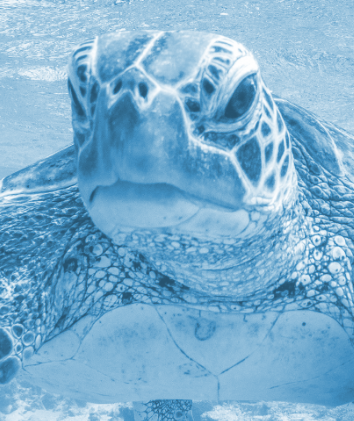Turtle team fights flood effect
 Experts are attempting to deal with a large increase in stranded, sick, and deceased marine turtles.
Experts are attempting to deal with a large increase in stranded, sick, and deceased marine turtles.
University of the Sunshine Coast (USC) researchers and wildlife rescuers have joined forces to help marine turtles recover from recent floods and the discovery of a mystery disorder that is eating away at their shells.
USC Associate Professor of Animal Ecology Kathy Townsend says the marine reptiles are struggling to find food, and it is only going to get worse in coming months.
“Sediment washed out from rivers and creeks during the extreme rain events is smothering seagrass beds in flood-impacted areas along the Queensland and NSW coast, reducing the quality and quantity of the turtles’ primary food source,” Dr Townsend says.
“Sea turtles usually spend summer fattening up before the annual winter dieback of seagrass, but the floods have compromised this, resulting in the poor health of turtles and more strandings,” she said.
“We anticipate seeing more starving and deceased turtles as winter progresses.”
The emergence of a new disease among turtles in Hervey Bay waters, first noticed anecdotally late last year, is also concerning researchers and rescuers.
Since the floods, more turtles are being found with sections of skin and scales shedding from their carapaces, making parts of their shells soft and sponge-like and sometimes exposing bare bone.
“This is the first time this has been documented in sea turtles, and so far, we believe it is contained to the Wide Bay region,” Dr Townsend said.
“The data being collected by our rescuers, as they respond to callouts about strandings and conduct health checks on basking turtles, is essential to helping our researchers determine what is going on, and how the turtles are being exposed to this disease.”
The group is sharing their findings with Queensland Parks and Wildlife Service and is working with The University of Queensland’s School of Veterinary Science to determine if the disease is viral, bacterial, parasitic or is being caused by pollutants.
An initiative called Turtles in Trouble is combining citizen science with USC’s global research expertise on turtles, including the human impacts from micro-plastics and other pollutants.
“This collaboration is providing essential data on turtle health and movements that we can use to gain new insights into the threats facing Australia’s sea turtles,” Dr Townsend said.








 Print
Print